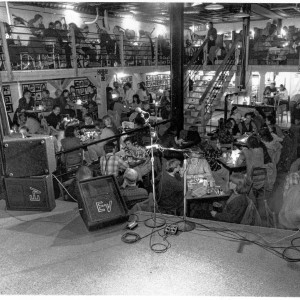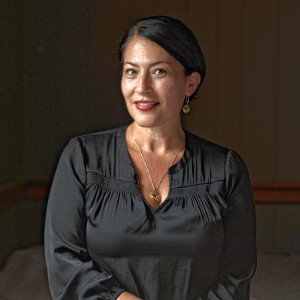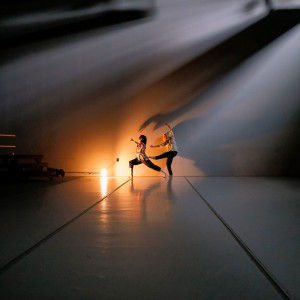Book Bag: ‘America Challenged’ by Rosalie Pedalino Porter; ‘The Masters of Medicine’ by Dr. Andrew Lam
| Published: 04-07-2023 8:49 AM |
America Challenged: The New Politics of Race, Education and Culture
By Rosalie Pedalino Porter; Hamilton Books
Amherst resident Rosalie Porter, who earned a doctorate in education from the University of Massachusetts Amherst and later taught and directed bilingual education in Massachusetts public school systems, is not shy about taking on the reigning political orthodoxy in our liberal state.
Porter, who came to the U.S. from Italy as a child in the 1930s, not knowing a word of English, has been a staunch critic of how bilingual education is generally taught in the country, arguing that structured immersion is a much more successful method of learning; she’s written a number of books on the subject, including a memoir.
In her newest work, “America Challenged,” Porter offers a broad critique of current philosophies and ideas of the political left, from multiculturalism to “identity politics” to gender diversity to Critical Race Theory, arguing that these movements have increasingly fractured the ties that have bound Americans as a nation.
“Redefining our common history and culture has gained momentum over the decades, starting in the academy and spreading throughout our public expressions,” she writes. “This is the kind of atmosphere prefigured in the worst times of the Stalinist purges.”
“Tearing down or defacing the statues of national figures, especially but not limited to those monuments of Civil War leaders, has become a popular sport of college students,” she adds.
Article continues after...
Yesterday's Most Read Articles
In a series of combative essays, Porter tackles issues such as multiculturalism, saying an insistence on strict ethnic and racial definitions for people has led to “racial preference legislation” and a focus on group identity at the expense of a collective American one.
She also argues that groupthink on the left has led to an attack on free speech in many settings, notably college campuses, in which conservative views are shouted down and a new “anti-racism” agenda “has gone ballistic,” particularly since the death of George Floyd at the hands of Minnesota police in the spring of 2020.
Some of the examples she cites are from here in the Valley, such as the ire that Amherst resident Phil O’Connell stirred up when he displayed a vulgar pro-Donald Trump sign in downtown Amherst in 2016 and 2017, prompting a couple of young people to assault him.
Porter writes that her participation in peaceful past antiwar and pro-civil rights protests “is amply noted in my writings.” But she blames the Black Lives Matter movement and antifa for helping spur violent anti-racism protests in a number of U.S. cities in 2020 that she believes only inflamed racial divisions.
“How does this behavior, which was observed daily on television news programs, lead to a redressing of racial wrongs?” she writes. “What does ‘end racism’ mean as a viable objective?”
Her fear, she writes in conclusion, is that the “re-imposition of racial and ethnic segregation in the name of equity” is only sending us backward as a society: “The ideal[s] of an integrated polity, of a population united in mutual respect across differences … are barely recognized today.”
The Masters of Medicine
By Andrew Lam; BenBella Books
Dr. Andrew Lam, a Longmeadow eye surgeon, has had a pretty busy side career during the past decade: writing three books, including two WWII-era novels and “Saving Sight,” which combined an account of his work and a look at doctors who made early advances in eye surgery and treating ocular diseases.
It’s a wonder where he finds the time to do it, but Lam has a new book due out in a couple of weeks, an engaging account of noted scientists and doctors from the past century who collectively developed the means to treat some of the world’s most formidable medical problems, from heart disease to diabetes to cancer.
In “The Masters of Medicine: Our Greatest Triumphs in the Race to Cure Humanity’s Deadliest Diseases,” Lam delves into what for most people are likely unknown and sometimes puzzling stories, such as the bitter rivalry between American virologists Jonas Salk and Albert Sabin to develop a polio vaccine. (Both ultimately were successful, though Salk’s vaccine was the first one used.)
It’s all written from the standpoint of an enthusiastic writer and physician who’s eager to make this history accessible to general readers.
As Lam says about modern efforts to tame heart disease, “The story of mankind’s journey into the heart is one of great drama and courage.”
He prefaces his chapter on it, for instance, by relating the story of a guy named Richard who suffered a heart attack when he was just 37.
Richard, it turns out, is better known as Dick Cheney, the former Wyoming congressman and U.S. vice president who over 45 years has had a long history of heart problems and operations, including a heart transplant in 2012.
Describing the increasingly more sophisticated treatments Cheney benefited from, Lam looks at the history of how those techniques were developed, beginning in the early 20th century when little was known about heart problems and infectious diseases were the biggest threat to the general population.
For instance, in 1929, Werner Forssmann, a young German medical intern, experimented on himself — against specific orders by his superiors — by inserting a catheter into his heart, showing how medicine could be sent directly to the heart and imaging dyes could be used to indicate problems and abnormalities.
Lam also profiles an East German doctor, Andreas Grüntzig, the first to experiment with using balloons for angioplasty, and a U.S. Army surgeon, Dwight Harken, who performed an early, emergency open heart surgery on D-Day, June 6, 1944, to save a man with a shell fragment lodged in his heart.
“The Masters of Medicine” offers many other accounts of this nature as it examines the push to develop penicillin and other antibiotics, as well as efforts to combat cancer.
Lam also explores the history of women’s deaths from childbirth and profiles a 19th-century Hungarian physician, Ignaz Semmelweis, who correctly deduced that many women in labor were dying from infection because doctors were not properly sterilizing their hands. For his beliefs, he was basically drummed out of the profession.
John Barry, author of a definitive book on the 1918 influenza epidemic, calls Lam’s new work “accurate, clear sighted, well written, and … filled with extraordinary tales of extraordinary personalities.”
Andrew Lam will discuss his book, which will be published April 18, on April 27 at 7 p.m. at the Odyssey Bookshop in South Hadley.
Steve Pfarrer can be reached at spfarrer@gazettenet.com.

 Speaking of Nature: Bird of my dreams, it’s you: Spotting a White-tailed Tropicbird on our cruise in Bermuda
Speaking of Nature: Bird of my dreams, it’s you: Spotting a White-tailed Tropicbird on our cruise in Bermuda The Iron Horse rides again: The storied Northampton club will reopen at last, May 15
The Iron Horse rides again: The storied Northampton club will reopen at last, May 15 The power of poetry: U.S. Poet Laureate Ada Limón to speak at Smith College
The power of poetry: U.S. Poet Laureate Ada Limón to speak at Smith College Upon Nancy’s Floor: 33 Hawley event celebrates iconic dancers, history, and a new dance floor
Upon Nancy’s Floor: 33 Hawley event celebrates iconic dancers, history, and a new dance floor
